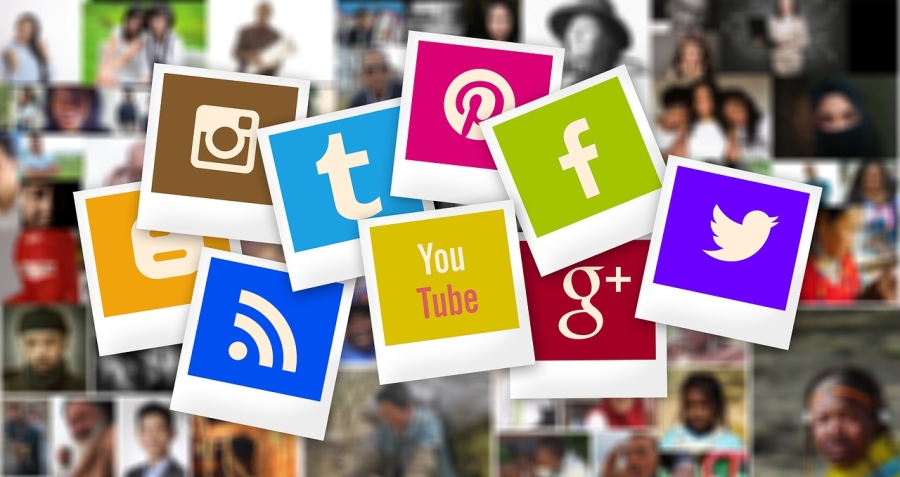- Afghanistan
- Åland Islands
- Albania
- Algeria
- American Samoa
- Andorra
- Angola
- Anguilla
- Antarctica
- Antigua and Barbuda
- Argentina
- Armenia
- Aruba
- Australia
- Austria
- Azerbaijan
- Bahamas
- Bahrain
- Bangladesh
- Barbados
- Belarus
- Belgium
- Belize
- Benin
- Bermuda
- Bhutan
- Bolivia
- Bonaire, Sint Eustatius, and Saba
- Bosnia and Herzegovina
- Botswana
- Bouvet Island
- Brazil
- British Indian Ocean Territory
- British Virgin Islands
- Brunei
- Bulgaria
- Burkina Faso
- Burundi
- Cambodia
- Cameroon
- Canada
- Cape Verde
- Cayman Islands
- Central African Republic
- Chad
- Chile
- China
- Christmas Island
- Cocos [Keeling] Islands
- Colombia
- Comoros
- Cook Islands
- Costa Rica
- Croatia
- Cuba
- Curaçao
- Cyprus
- Czech Republic
- Congo - Kinshasa
- Denmark
- Djibouti
- Dominica
- Dominican Republic
- Timor-Leste
- Ecuador
- Egypt
- El Salvador
- Equatorial Guinea
- Eritrea
- Estonia
- Ethiopia
- Falkland Islands
- Faroe Islands
- Fiji
- Finland
- France
- French Guiana
- French Polynesia
- French Southern Territories
- Gabon
- Gambia
- Georgia
- Germany
- Ghana
- Gibraltar
- Greece
- Greenland
- Grenada
- Guadeloupe
- Guam
- Guatemala
- Guernsey
- Guinea
- Guinea-Bissau
- Guyana
- Haiti
- Heard Island and McDonald Islands
- Honduras
- Hong Kong SAR China
- Hungary
- Iceland
- India
- Indonesia
- Iran
- Iraq
- Ireland
- Isle of Man
- Israel
- Italy
- Côte d’Ivoire
- Jamaica
- Japan
- Jersey
- Jordan
- Kazakhstan
- Kenya
- Kiribati
- Kosovo
- Kuwait
- Kyrgyzstan
- Laos
- Latvia
- Lebanon
- Lesotho
- Liberia
- Libya
- Liechtenstein
- Lithuania
- Luxembourg
- Macau SAR China
- Macedonia
- Madagascar
- Malawi
- Malaysia
- Maldives
- Mali
- Malta
- Marshall Islands
- Martinique
- Mauritania
- Mauritius
- Mayotte
- Mexico
- Micronesia
- Moldova
- Monaco
- Mongolia
- Montenegro
- Montserrat
- Morocco
- Mozambique
- Myanmar [Burma]
- Namibia
- Nauru
- Nepal
- Netherlands
- Netherlands Antilles
- New Caledonia
- New Zealand
- Nicaragua
- Niger
- Nigeria
- Niue
- Norfolk Island
- North Korea
- Northern Mariana Islands
- Norway
- Oman
- Pakistan
- Palau
- Palestinian Territories
- Panama
- Papua New Guinea
- Paraguay
- Peru
- Philippines
- Pitcairn Islands
- Poland
- Portugal
- Puerto Rico
- Qatar
- Congo - Brazzaville
- Réunion
- Romania
- Russia
- Rwanda
- Saint Barthélemy
- Saint Helena
- Saint Kitts and Nevis
- Saint Lucia
- Saint Martin
- Saint Pierre and Miquelon
- Saint Vincent and the Grenadines
- Samoa
- San Marino
- São Tomé and Príncipe
- Saudi Arabia
- Senegal
- Serbia
- Serbia and Montenegro
- Seychelles
- Sierra Leone
- Singapore
- Sint Maarten
- Slovakia
- Slovenia
- Solomon Islands
- Somalia
- South Africa
- South Georgia and the South Sandwich Islands
- South Korea
- South Sudan
- Spain
- Sri Lanka
- Sudan
- Suriname
- Svalbard and Jan Mayen
- Swaziland
- Sweden
- Switzerland
- Syria
- Taiwan
- Tajikistan
- Tanzania
- Thailand
- Togo
- Tokelau
- Tonga
- Trinidad and Tobago
- Tunisia
- Turkey
- Turkmenistan
- Turks and Caicos Islands
- Tuvalu
- U.S. Virgin Islands
- Uganda
- Ukraine
- United Arab Emirates
- United Kingdom
- United States
- U.S. Minor Outlying Islands
- Uruguay
- Uzbekistan
- Vanuatu
- Vatican City
- Venezuela
- Vietnam
- Wallis and Futuna
- Western Sahara
- Yemen
- Zambia
- Zimbabwe
What Are Literature and Publishing Industry Jobs?

What Are Literature and Publishing Industry Jobs?
Literature and Publishing Industry Jobs: A Complete Guide to Careers, Roles, and Opportunities 📚✍️
The literature and publishing industry is a dynamic and essential part of the global entertainment and information economy. It encompasses a wide range of careers, from writing and editing to publishing, literary management, and marketing. Whether you're interested in crafting stories, editing manuscripts, or working in the marketing and sales of books, there are numerous career opportunities in this field. This guide will help you explore the various roles within the literature and publishing industry and provide tips on how to get started in this exciting profession.
What Are Literature and Publishing Industry Jobs?
Literature and publishing jobs involve the creation, production, and distribution of written works. This industry covers various sectors such as books, magazines, newspapers, digital content, and more. Careers can include writing, editing, publishing, literary agency, marketing, public relations, and even research positions.
Let’s dive into the main job categories within the literature and publishing sector:
Key Categories of Jobs in the Literature and Publishing Industry
1. Writing and Content Creation Jobs: The Heart of the Industry
Writers are the backbone of the literature and publishing industry. These professionals create books, articles, essays, and other written materials that engage, inform, and entertain readers. Writers can work in a variety of genres, including fiction, nonfiction, academic writing, and content creation for digital platforms.
Key Roles:
- Author/Writer: Writes original content, including novels, short stories, articles, or essays. Writers can specialize in fiction, nonfiction, poetry, or specific genres.
- Journalist: Specializes in writing articles and news stories for newspapers, magazines, or online publications.
- Copywriter: Writes marketing content, advertisements, and product descriptions for brands, companies, and publications.
- Screenwriter: Writes scripts for movies, television shows, and online videos.
How to Get Started:
- Education: A degree in creative writing, journalism, or English literature can be useful for aspiring writers.
- Skills: Strong writing, research, and storytelling skills are essential.
- Experience: Writing for smaller publications, blogs, or freelance projects can help build a portfolio.
2. Editing and Proofreading Jobs: Ensuring Quality and Clarity
Editors and proofreaders play a crucial role in refining written content. They review manuscripts, articles, and other written works to ensure that the language is clear, accurate, and free from errors. Editing involves a range of tasks, from checking grammar and punctuation to improving narrative structure and style.
Key Roles:
- Editor: Edits written content for clarity, structure, and style. Editors may specialize in specific genres, such as fiction, academic writing, or technical content.
- Copyeditor: Reviews content to ensure it’s grammatically correct and consistent with a publisher’s guidelines.
- Proofreader: Focuses on catching spelling, punctuation, and formatting errors in written work before publication.
- Managing Editor: Oversees editorial operations, managing a team of editors, writers, and proofreaders.
How to Get Started:
- Education: A degree in English, journalism, or communication is often preferred.
- Skills: Strong attention to detail, excellent grammar, and a deep understanding of language are key.
- Experience: Starting as an assistant editor or freelance proofreader can help gain experience.
3. Publishing and Production Jobs: Bringing Books to Life
The publishing side of the literature industry involves producing and distributing written content. Publishers work with authors to produce books, magazines, and other written works and manage the production process from manuscript to finished product.
Key Roles:
- Publisher: Oversees the entire publishing process, from acquiring manuscripts to producing and distributing books.
- Production Manager: Manages the physical production of books, including layout, design, printing, and binding.
- Book Designer: Works on the design of book covers, layout, and other visual elements of printed materials.
- Literary Agent: Represents authors in securing publishing deals, negotiating contracts, and finding appropriate publishers for manuscripts.
- Editorial Assistant: Supports the editorial team by handling administrative tasks, such as managing submissions, correspondence, and schedules.
How to Get Started:
- Education: A degree in publishing, English literature, or business can be useful.
- Skills: Strong organizational skills, creativity, and an understanding of the publishing process are key.
- Experience: Internships or entry-level roles in publishing houses, literary agencies, or production companies can help you gain experience.
4. Marketing and Public Relations Jobs: Promoting Books and Authors
Marketing and public relations professionals play an essential role in promoting books and authors to the public. They create strategies to market books, manage publicity campaigns, and connect authors with readers, critics, and media outlets.
Key Roles:
- Book Marketing Manager: Develops and implements marketing campaigns for books, including advertising, social media, and book tours.
- Publicist: Works with authors to create public relations campaigns, securing interviews, media coverage, and book reviews.
- Social Media Manager: Manages an author’s or publisher’s social media presence, creating posts, ads, and engaging with readers.
- Sales Manager: Manages relationships with retailers, distributors, and wholesalers to ensure books reach stores and online marketplaces.
How to Get Started:
- Education: A degree in marketing, communications, or public relations can be helpful.
- Skills: Strong communication skills, creativity, and the ability to analyze market trends are crucial.
- Experience: Gaining experience in marketing or public relations through internships or entry-level roles can help you get started.
5. Literary Management Jobs: Overseeing Literary Careers
Literary managers and agents work directly with authors to help develop their careers, secure contracts, and manage their professional lives. These professionals typically work for literary agencies or publishing houses.
Key Roles:
- Literary Agent: Represents authors and negotiates book deals, film rights, and other contracts. Literary agents play a pivotal role in helping authors build successful careers.
- Book Scout: Identifies and seeks out potential authors and books for publishers, often focusing on specific genres or markets.
- Rights Manager: Manages the licensing of books for translation, film adaptations, or merchandise.
How to Get Started:
- Education: A degree in law, literature, or business can be beneficial for a career as a literary agent or rights manager.
- Skills: Strong negotiation skills, a keen understanding of literature, and an ability to network are important.
- Experience: Many literary agents start as assistants at literary agencies or publishing houses.
Conclusion: Your Path to a Career in Literature and Publishing
The literature and publishing industry offers a wealth of career opportunities for those passionate about books, writing, and storytelling. Whether you're interested in writing, editing, publishing, marketing, or managing authors, there’s a job for you in this field. With the right education, skills, and experience, you can make your mark in the world of literature and publishing.
For more job opportunities in literature and publishing, explore MusicalArts.com and visit Jobs.MusicalArts.com for available listings.

 by My Jobs Centre
by My Jobs Centre




